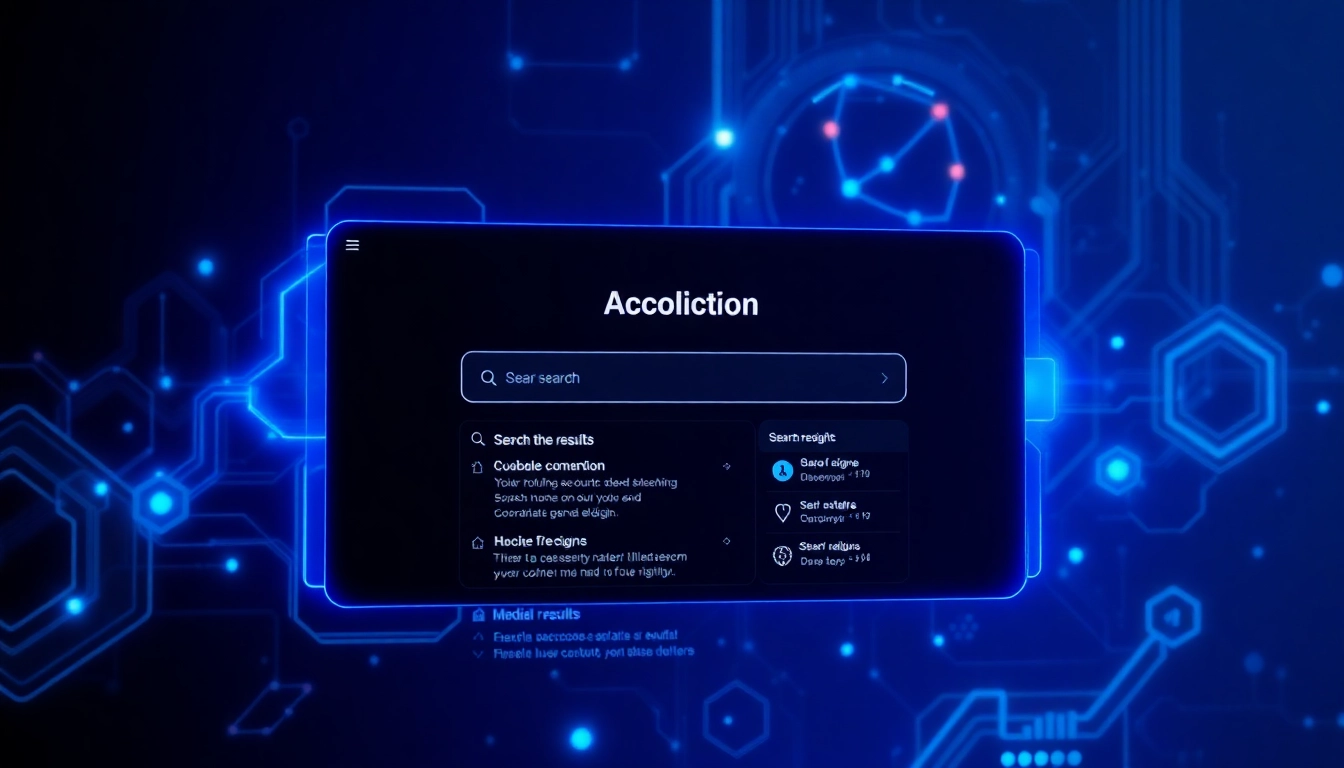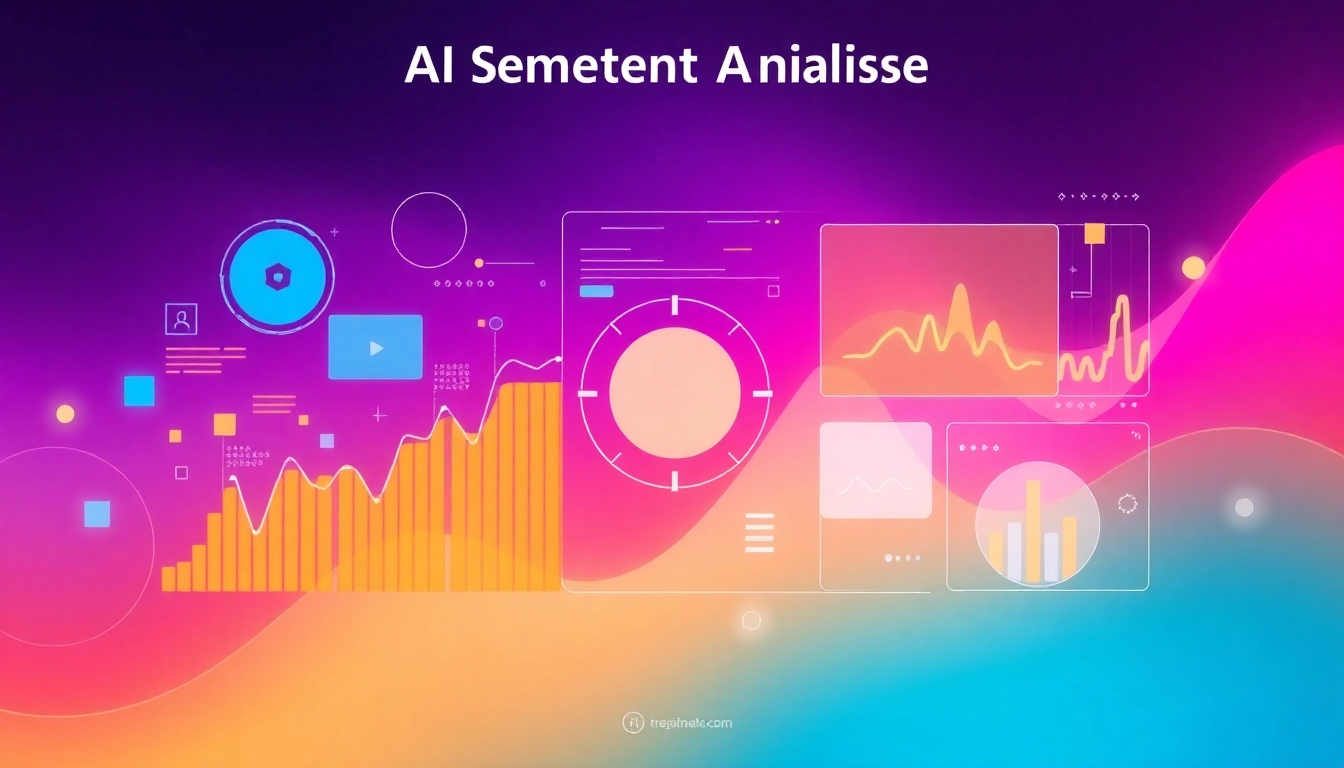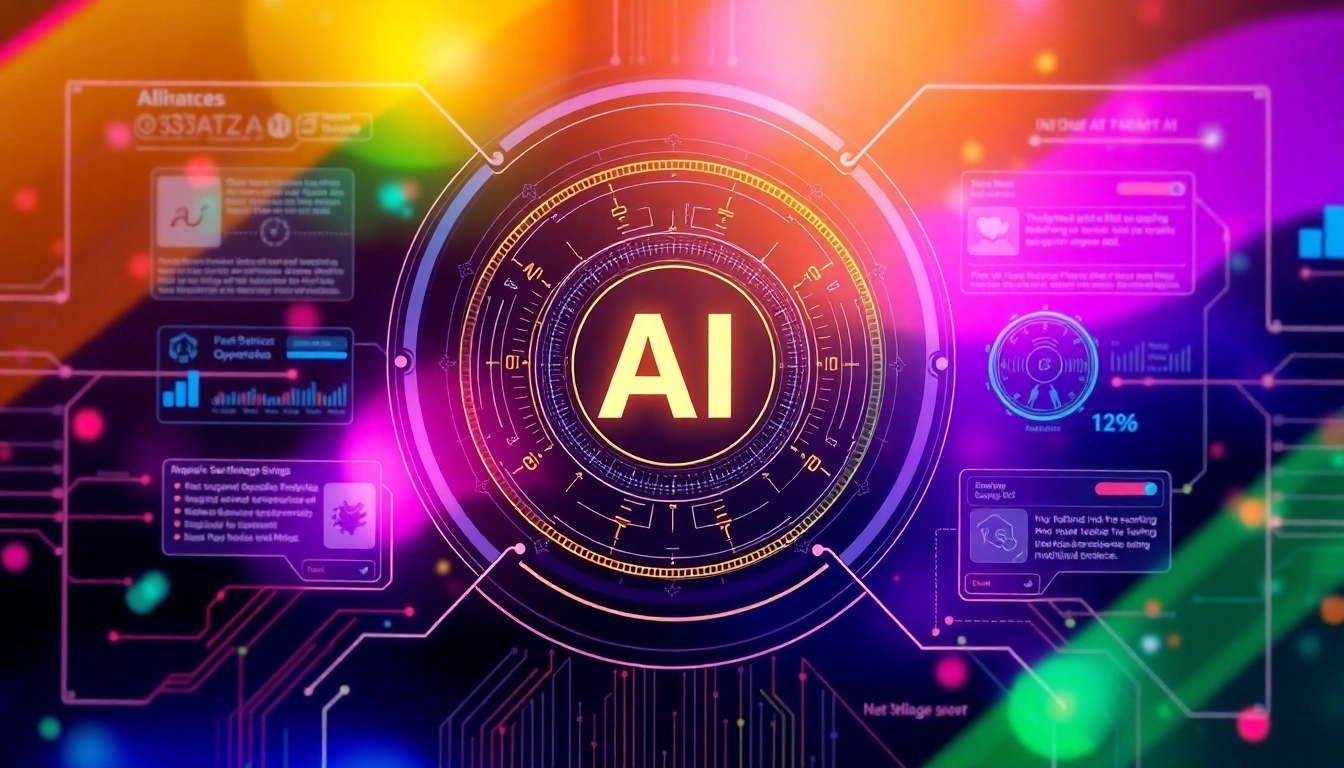Understanding AI Search Engines
As we navigate the digital age, information retrieval has become increasingly complex. Traditional search engines, while effective, often struggle to provide the depth and context that users seek. This is where the AI search engine comes into play, offering a transformative approach that enhances how we discover and interact with information online.
What Exactly is an AI Search Engine?
An AI search engine utilizes artificial intelligence technology to improve the way users find information. Instead of relying solely on keyword-based algorithms, AI search engines analyze user queries in a more nuanced manner, considering factors such as intent, context, and user preferences. This represents a significant shift from traditional models, enabling the delivery of more relevant and comprehensive results.
How AI Transforms Search Functionality
AI enhances search functionality in several key ways:
- Natural Language Processing (NLP): AI search engines leverage NLP to understand the natural language in queries, enabling users to interact as they would in conversation.
- Contextual Analysis: By analyzing previous interactions and contextual information, AI search engines can better predict what users are looking for beyond just the keywords.
- Machine Learning Algorithms: These systems continuously learn from user behavior, improving their understanding and responses over time.
The Importance of Contextual Relevance in Search Results
Contextual relevance is critical for effective information retrieval. AI search engines strive to provide results that are not only relevant to the keywords used but also to the user’s broader goals or needs. This means delivering answers that consider geographical location, past search history, and even current events, leading to a much more personalized search experience.
Top AI Search Engines to Consider
Overview of Leading AI Search Engines
Several AI search engines have gained reputation and popularity, each offering unique features and advantages. A few notable examples include:
- Perplexity AI: This engine integrates generative AI with real-time web search, providing users with structured answers accompanied by cited sources.
- Google Gemini: Google’s latest offering combines comprehensive web searching with contextual assistance, leveraging its vast data reservoir.
- ChatGPT Search: Developed by OpenAI, this feature integrates advanced natural language capabilities to provide direct answers to user inquiries.
- Felo: Not only is it a search engine, but it also allows users to create AI-generated presentations and mind maps, enhancing the search experience with creativity.
Comparative Analysis: Features and Benefits
To fully appreciate the range of capabilities offered by AI search engines, we can compare their features in the following areas:
- Accuracy: Advanced algorithms of these engines often return more precise results than traditional search engines.
- User Experience: Enhanced interface designs and interaction models create a smoother and more intuitive search experience.
- Scalability: AI engines can scale their offerings to cater to a diverse range of users, from casual searchers to academic researchers.
How to Choose the Right AI Search Engine for Your Needs
Selecting the right AI search engine depends on your specific needs:
- Define Purpose: Is your primary need casual browsing, academic research, or perhaps professional development?
- Consider Features: Look for engines that offer features important to you, such as privacy options, browsing speed, or the ability to generate content.
- Test Performance: Experiment with different engines to find which one consistently delivers the best results for your queries.
Benefits of Using AI Search Engines
Improved Accuracy and Relevance of Search Results
AI search engines consistently outperform their traditional counterparts in accuracy. They analyze extensive datasets and learn from interactions to produce results that are more aligned with user intent. For instance, Perplexity AI’s ability to combine various data sources ensures that answers are not only correct but also contextually appropriate for the user.
Speed and Efficiency in Information Retrieval
In our fast-paced world, speed is of the essence. AI search engines optimize information retrieval processes, delivering results in seconds rather than minutes. Their advanced algorithms prioritize the most relevant content, allowing users to spend less time searching and more time engaging with information.
Personalization Features Enhancing User Experience
Many AI search engines offer personalized features based on user behavior and preferences. For example, if a user frequently searches for academic papers, an AI engine might prioritize scholarly articles in future queries, adapting to the user’s unique search profile.
Challenges Faced by AI Search Engines
Data Privacy and Security Concerns
As with any technology that handles vast amounts of data, privacy and security are paramount concerns. Users must trust that their data is handled responsibly, and search engines need to implement robust security measures to gain this trust.
Limitations of Current AI Technology
While AI technology has made significant strides, challenges remain. Current systems can struggle with understanding nuance or sarcasm, often misinterpreting user intent. This can lead to frustrating search experiences when users do not receive the information they expect.
Addressing Misinformation and Content Quality
The rise of misinformation presents a significant challenge for AI search engines. Ensuring that users receive accurate and reliable information is critical. AI systems must be designed to filter out false or misleading content while promoting credible sources.
The Future of AI Search Engines
Emerging Trends and Innovations
The landscape of AI search engines is rapidly evolving, with emerging trends shaping their future. One significant trend is the increasing integration of multimedia content in search results, catering to diverse user preferences. As visual and audio content becomes more prominent, search engines will likely adapt to include these formats in their results.
Integration with Other Technologies
Future AI search engines will increasingly integrate with other technologies, such as augmented reality (AR) and virtual reality (VR). This integration may lead to more immersive search experiences where users can visualize information in real-time, rather than merely reading it on a screen.
Predictions for AI Search Engines in 2030
By 2030, AI search engines are expected to be indispensable tools across various domains, from education to commerce. The anticipated improvements in AI capabilities will enable even more accurate understanding of user intent, leading to results that are not only relevant but also uniquely tailored to individual needs. Data-driven personalization will likely become even more sophisticated, incorporating predictive analytics to anticipate user queries before they are even typed.











Leave a Reply